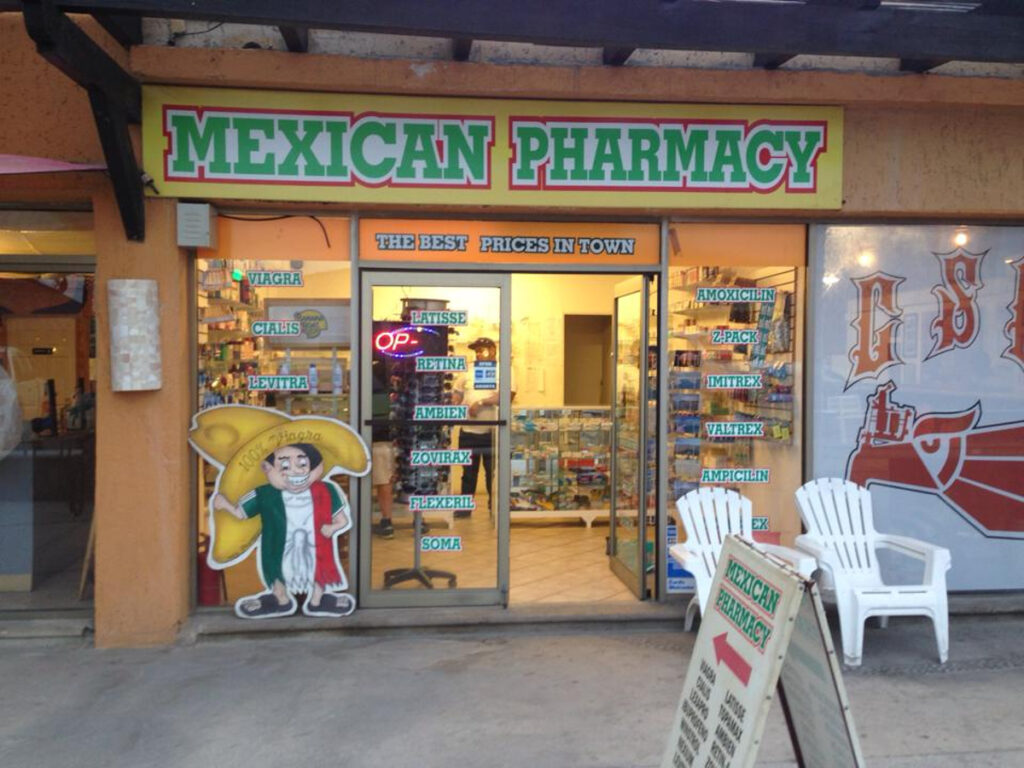Of the 66 million international visitors to Mexico in 2022, at least half were from the United States. Nearly 20 million of those Americans arrived by air. Most of the rest came by car, bus or on foot. Unfortunately, an obscene proliferation of tainted drugs ensured a record number of those folks never made it back across the border.
Why?
It’s not as if either the DEA or the U.S. State Department didn’t know what was happening south of the border. In fact, a California medical examiner brought the situation to the Feds’ attention back in 2019, after 29-year-old Brennan Harrell overdosed and died from taking a pharmacy’s fentanyl-laced “prescription pain pills”. Heck, the DEA even spent months investigating the matter; promised Brennan’s parents they’d do something about it too.
And yet.
Tainted Drugs
That’s what Los Angeles Times reporters Connor Sheets and Keri Blakinger discovered after they went digging. It’s what ace UCLA researcher Chelsea Shover simultaneously confirmed too. Mexican pharmacies were selling tainted drugs, and Americans were dying as a result.
“[The Brennan Harrel] case could have been a canary in the coal mine and could have prevented more deaths that have surely occurred since then,” Shover told the LAT.
“We knew when we detected counterfeits that there would be people who died, but it’s deeply concerning that there was compelling evidence of this a few years ago, and yet there wasn’t any kind of public information campaign about it.”
If it weren’t for Brennan’s folks, the matter might never have even materialized at all.
Per the LA Times:
Shortly after Harrell’s death, officials in Cabo San Lucas told Mary Harrell that her young, healthy son had suffered a heart attack. The family learned what really happened weeks later, when they tracked down a medical examiner in California willing to conduct an autopsy and more thorough toxicology testing.
In the end, determining Harrell’s actual cause of death required money, a lawyer and a trip to Mexico — resources and options many families don’t have.
Resources and options that families shouldn’t have to have.
And wouldn’t have to have either; if, that is, Alerts had gone out back in 2019.
Neither the LA Times reporters nor Shover were able to get any real casualty numbers “because Mexican fatality data are notoriously unreliable and the U.S. government has been tight-lipped about the problem.”
Seems when the LA Times did reach out “the DEA declined to comment and a State Department spokesperson re-delivered some claptrap about “not going into detail about any U.S. citizens impacted by counterfeit medication due to privacy considerations.”
Oh, Sheets and Blakinger also sent the Feds some detailed questions. They’re still waiting for the answers.
As for the Mexican authorities, well…
Repeated requests for comment from the Baja California Sur state police and prosecutor’s office went unanswered. Los Cabos municipal police did not provide comment.
Surprised?
The sleuths did discover one thing though – Mexico’s medical examiners don’t test for fentanyl.
Really.
In other words, unless you’re willing to leap tall buildings in single bounds like the Harrells, you may never know what killed a loved one.
We wholeheartedly recommend reading the LA Times story. Yes, it’s a bit heartbreaking. Yet it’s also some very solid reporting.
Healing Properties
Healing Properties wholeheartedly thanks LA Times reporters Connor Sheets and Keri Blakinger, as well as UCLA’s Chelsea Shover, for their work, as well as their fortitude. We also extend our deepest condolences to the Harrells. We applaud the family’s diligence too. After all, had the Feds done the right thing back then, many lives would’ve been saved.
Yes, we know the Feds are fighting a formidable battle vis-a-vis Mexico. We even previously covered the risks ourselves. But when so many Americans are in harms way, it’s a battle that must be won. We can only hope that future cross border efforts are as robust and effective as those taken Stateside.
How about you? Are you suffering from substance abuse? Well, then give us a ring. We’ve been helping folks find sobriety since 2002, we’d be more than honored to help you too.
